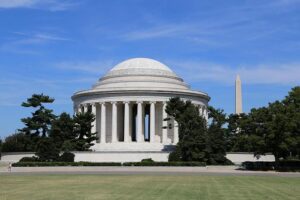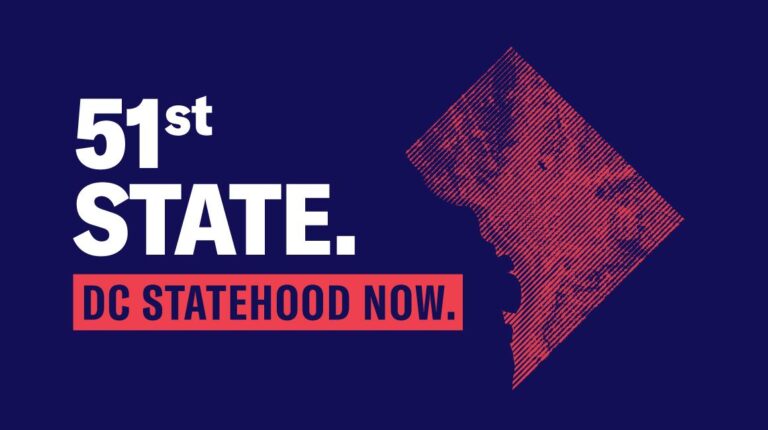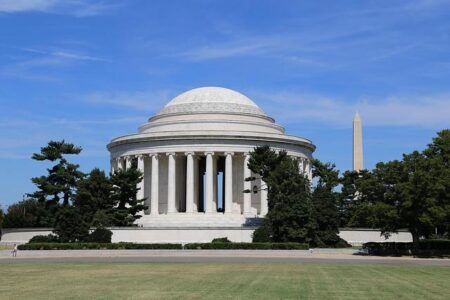In a fierce political battle over the future of the nation’s capital, Republicans in Congress are advancing efforts to repeal Washington, D.C.’s governing authority, challenging the city’s ability to manage its own affairs. Meanwhile, advocates for the district are intensifying their push for full statehood, arguing that D.C. residents deserve equal representation and self-governance. This escalating conflict highlights deep divisions over local autonomy, voting rights, and the broader struggle for political power in the United States.
Republican Efforts to Revoke D.C.’s Local Autonomy Spark Intense Debate
Republican lawmakers have reignited controversy by introducing legislation aimed at stripping Washington D.C. of its local governance powers. Proponents argue that federal oversight is necessary due to concerns over fiscal management and accountability, citing instances where city policies diverged from national interests. The proposed measures would effectively place D.C.’s budget and key administrative decisions under Congressional control, raising alarms about the erosion of democratic self-rule in the nation‚Äôs capital.
In response, supporters of D.C.’s autonomy are intensifying their campaign for statehood, emphasizing the right of residents to elect their own leaders and manage their affairs independently. Advocates highlight several key points:
- Representation: D.C. residents lack voting representation in Congress despite paying federal taxes.
- Local control: Statehood would empower residents to govern without external interference.
- Equality: Recognizing D.C. as a state addresses long-standing civil rights and governance inequities.
| Position | Key Argument |
|---|---|
| Republicans | Federal oversight needed for fiscal responsibility |
| D.C. supporters | Right to self-governance and equal representation |
The Case for D.C. Statehood Gains Momentum Among City Advocates
Advocates for DC statehood are intensifying their efforts amid mounting political opposition from Republican lawmakers who are seeking to roll back the city’s limited governing authority. Supporters argue that Washington D.C.’s population exceeds that of some states, yet its residents lack full congressional representation and autonomy over local decisions. This disparity has galvanized community leaders, activists, and lawmakers who see statehood as a pathway to equality and self-determination.
To showcase the stakes involved, here is a comparison of governance powers between D.C. and typical U.S. states:
| Governance Aspect | Washington D.C. | Average U.S. State |
|---|---|---|
| Voting Representation in Congress | 0 voting Representatives, 0 Senators | Multiple voting Representatives, 2 Senators |
| Local Law Autonomy | Subject to Congressional approval | Fully autonomous |
| Control over Budget | Congressional oversight required | State-controlled budget process |
| Electoral Votes | 3 (limited) | Varies, proportional to population |
City supporters are united around a few key demands:
- Full congressional voting rights and Senate representation.
- Complete budgetary independence from federal oversight.
- Local lawmaking without the threat of congressional interference.
- Recognition of D.C. as a state to uphold democratic principles.
Legal and Political Implications of Repealing D.C.’s Governing Authority
The push to repeal Washington D.C.’s governing authority raises significant constitutional concerns, as opponents argue it undermines the principles of home rule and self-governance. Critics highlight that stripping the city of its elected officials’ power could set a precedent for federal overreach, potentially destabilizing the balance between local and national jurisdictions. Moreover, legal experts warn that such a move might face numerous legal challenges, citing the District Clause of the U.S. Constitution, which grants Congress ultimate authority over the capital.
Meanwhile, city supporters advocating for statehood emphasize the political implications of the repeal attempt. They argue that dismantling local governance suppresses the democratic voice of D.C.’s predominantly minority population and reflects broader partisan conflicts. The debate intensifies the struggle over representation in Congress, with statehood supporters framing it as a fight for equal rights, while opponents frame it as a partisan power grab. Below is a summary of the core arguments from both sides:
| Aspect | Repeal Supporters’ View | Statehood Advocates’ View |
|---|---|---|
| Constitutionality | Federal oversight needed for capital security | Home rule is a constitutional right |
| Political Impact | Prevents partisan gain in Congress | Ensures fair representation for residents |
| Local Autonomy | Limits local control to maintain federal interests | Advocates full self-governance |
| Democratic Principles | Protects national oversight | Fights voter disenfranchisement |
Recommendations for Bipartisan Solutions to Address D.C.’s Representation Crisis
To bridge the deep divide over D.C.’s representation, policymakers on both sides must prioritize practical, middle-ground solutions. One promising avenue involves establishing a local government framework that preserves D.C.’s autonomy while increasing federal oversight to ensure accountability. This approach could include:
- Implementing a hybrid governance model combining local elections with federally-appointed watchdogs
- Guaranteeing residents a voting representative in Congress, without full statehood
- Creating robust checks to balance D.C.’s unique status with national interests
Another viable strategy centers on expanding congressional representation through targeted legislative reforms rather than immediate statehood. Lawmakers could enact a constitutional amendment or federal statute providing:
| Option | Benefits | Challenges |
|---|---|---|
| Non-voting Delegate with Budget Authority | Ensures voice on budgetary issues | Limited legislative power |
| Voting Representative Without Statehood | Full congressional participation | Potential constitutional hurdles |
| Conditional Statehood Pathway | Gradual transition, bipartisan support | Requires consensus on preconditions |
These proposals, rooted in mutual respect and political pragmatism, pave a path forward that acknowledges the city’s democratic rights while respecting constitutional boundaries and partisan concerns.
To Conclude
As the debate over Washington, D.C.’s governance continues to unfold, the clash between Republicans seeking to repeal the city‚Äôs governing authority and proponents advocating for statehood highlights the broader national conversation about representation and autonomy. With both sides entrenched in their positions, the future of the nation‚Äôs capital remains uncertain, as lawmakers navigate the complex intersections of politics, governance, and the rights of D.C. residents. The coming months will be pivotal in determining whether the city gains greater self-determination or faces renewed federal oversight.







